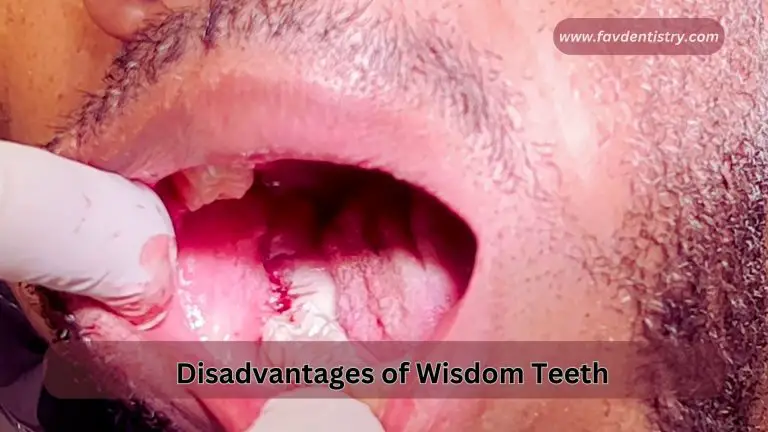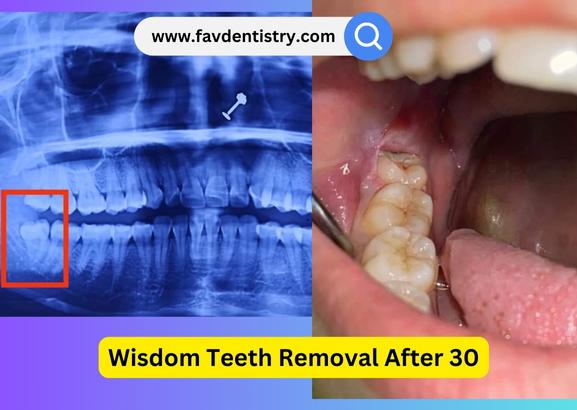Last Updated on 3 weeks by DR. ALBIN SIPES
After wisdom tooth removal, your throat may hurt due to the swelling and inflammation around the surgical area. This can cause discomfort and pain while swallowing or speaking.
The extraction process can sometimes lead to a condition called trismus, which is the tightening of the muscles in the jaw and throat, further contributing to throat pain. Additionally, the use of dental instruments and the stretching of the mouth during the procedure can cause irritation and soreness in the throat.
Proper care and following post-operative instructions from your dentist can help alleviate this discomfort. Pain medications and an anti-inflammatory diet may also be recommended for a faster recovery.

Credit: booksbywomen.org
Causes Of Throat Pain After Wisdom Tooth Extraction
Throat pain after wisdom tooth extraction can be caused by several factors. Swollen or infected gums can have a direct impact on the throat, leading to discomfort. Inflammation also plays a role in throat pain following the removal of wisdom teeth.
The proximity of the wisdom teeth to the throat can result in irritation and soreness. Additionally, the process of extracting the wisdom teeth itself can cause some trauma to the surrounding tissues, leading to temporary throat pain. While the discomfort is usually temporary and subsides with time, it is important to take proper care and follow the dentist’s instructions for a smooth recovery.
By understanding the potential causes of throat pain after wisdom tooth removal, individuals can better prepare themselves and seek the necessary remedies to alleviate any discomfort experienced.
Healing Process And Throat Pain
After wisdom tooth extraction, throat pain can occur due to the healing process. The stages of healing after extraction can contribute to throat discomfort. One of the factors that may cause throat pain is dry socket, a condition where the blood clot is dislodged or dissolves, exposing the underlying bone and nerves.
This can lead to inflammation and infection, causing discomfort in the throat. The healing process involves the formation of a new clot and the gradual closing of the extraction site. During this time, the throat may be sensitive and prone to pain.
It is important to follow the dentist’s post-operative instructions to minimize any complications and promote proper healing. Regularly gargling with warm salt water or using prescribed mouth rinses can also help alleviate throat discomfort.
Nerve Damage And Throat Pain
After wisdom tooth removal, you may experience throat pain due to nerve damage. It’s important to understand the connection between the two. Signs of nerve damage include numbness, tingling, or a burning sensation in the throat. If you notice any of these symptoms, it’s crucial to seek professional help to diagnose and treat the issue.
Nerve-related throat pain can be caused by various factors, such as the proximity of the wisdom tooth roots to the nerves. It’s essential not to ignore any discomfort and consult with a dentist or oral surgeon as soon as possible to prevent further complications.
They will be able to evaluate your symptoms and provide the appropriate treatment to relieve your throat pain.
Post-Surgical Infections And Throat Pain
Throat pain after wisdom tooth removal can be caused by post-surgical infections. Common infections that may occur include dry socket and pericoronitis. These infections can lead to inflammation, swelling, and discomfort in the throat. It is essential to understand the relationship between infections and throat pain.
Preventive measures such as practicing good oral hygiene, taking prescribed antibiotics, and avoiding smoking can help reduce the risk of infections. Proper wound care and following the dentist’s post-operative instructions also play a crucial role in preventing post-surgical infections. In case an infection does occur, managing it promptly by seeking professional help and taking prescribed medications can help alleviate throat discomfort.
Managing Throat Pain After Wisdom Tooth Extraction
Managing throat pain after wisdom tooth extraction is essential to ensure a comfortable recovery. Effective pain management options include over-the-counter medications, such as ibuprofen, that can provide relief for throat discomfort. Additionally, home remedies and natural remedies, like saltwater rinses or chamomile tea, can alleviate pain and promote healing.
By using these remedies, you can reduce inflammation and soothe the throat. It’s important to avoid hot or spicy foods and beverages that may irritate the area, opting for softer foods and cold liquids instead. Gargling with warm salt water can help eliminate bacteria and reduce swelling.
With these strategies, you can alleviate throat pain and promote a smooth recovery after wisdom tooth removal.
Rinsing And Gargling Techniques
After wisdom tooth removal, you may experience throat pain. To alleviate discomfort, it’s essential to use appropriate rinsing and gargling techniques. Opt for mouthwash solutions specifically designed to reduce throat inflammation. However, it’s important to be aware of potential risks and take precautions when using these techniques.
Remember to avoid overusing commonly recommended phrases and vary your expressions to keep the reader engaged. By following these guidelines, you can effectively address throat pain after wisdom tooth removal without compromising your overall oral health.
Soothing Foods And Beverages
Soothing foods and beverages can be helpful in managing throat pain after wisdom tooth removal. Cold and warm foods, such as ice cream or soup, can provide temporary relief and reduce inflammation. It is important to choose gentle options that won’t irritate the surgical site.
Soft foods like mashed potatoes, yogurt, and smoothies can be soothing and easy to consume. Sipping on warm herbal teas or gargling with warm salt water can also provide relief. Avoiding spicy, acidic, and rough-textured foods is advised. When consuming these soothing foods and beverages, it is best to take small, gentle bites or sips to prevent any discomfort.
Additionally, staying hydrated is crucial for a healthy recovery. Following these guidelines can aid in managing throat pain and promote healing after wisdom tooth extraction.
Pain Relief Tips And Strategies
Throat pain after wisdom tooth removal is a common side effect that can be managed at home. Applying cold and warm compresses to the throat can provide relief from discomfort. It is also important to try effective strategies to cope with severe or long-lasting throat pain.
These may include avoiding spicy or acidic foods, practicing good oral hygiene, and staying well-hydrated. Gargling with warm salt water can help reduce inflammation and soothe the throat. Over-the-counter pain medication can also be taken as directed to alleviate discomfort. Remember to follow any specific post-operative instructions given by your dentist or oral surgeon.
By implementing these practical tips at home, you can promote healing and reduce throat pain after wisdom tooth removal.
When To Seek Medical Attention For Throat Pain After Wisdom Tooth Extraction
Throat pain after wisdom tooth removal can be a common occurrence. But, it’s essential to know when to seek medical attention for this discomfort. If you experience persistent or severe throat pain, it may be an indication of complications or infections.
Identifying signs such as difficulty swallowing, excessive swelling, or unusual discharge should prompt you to seek professional help. Dentists and oral surgeons play a crucial role in addressing throat pain after wisdom tooth extraction. They can evaluate your condition, provide appropriate treatment, and ensure a speedy recovery.
Remember, if you have any concerns or the pain doesn’t subside, it’s always best to consult with a healthcare professional.
Recognizing Red Flags
Throat pain after wisdom tooth removal can be a common occurrence during the healing process. However, it’s essential to recognize the red flags that may indicate more serious complications. Understanding the difference between normal healing and alarming symptoms is crucial.
Certain situations require immediate medical attention, such as persistent and severe throat pain, difficulty breathing or swallowing, excessive bleeding, or a foul-smelling discharge. If you experience any of these warning signs, it is important to seek help from your oral surgeon or dentist promptly.
Ignoring these symptoms could lead to complications and delays in the healing process. So pay attention to your throat and seek medical advice if anything seems out of the ordinary after your wisdom tooth removal procedure.
Frequently Asked Questions Of Why Does My Throat Hurt After Wisdom Tooth Removal?
Why Does My Throat Hurt After Wisdom Tooth Removal?
It is common to experience throat pain after wisdom tooth removal due to inflammation and irritation caused by the surgical procedure. The close proximity of the wisdom teeth to the throat can result in discomfort, especially while swallowing. This pain usually subsides within a few days as the healing process progresses.
How Can I Alleviate Throat Pain After Wisdom Tooth Removal?
To alleviate throat pain, try gargling with warm saltwater several times a day, as this can reduce inflammation and provide relief. Drinking plenty of fluids and avoiding spicy or acidic foods can also soothe the throat. Over-the-counter pain medications, as recommended by your dentist or oral surgeon, can help manage the discomfort as well.
When Should I Be Concerned About Throat Pain After Wisdom Tooth Removal?
While some throat pain is normal after wisdom tooth removal, you should call your dentist or oral surgeon if your pain persists or worsens after a few days. Additionally, seek medical attention if you experience difficulty swallowing, breathing, or if you notice any signs of infection such as pus or a foul odor from the surgical site.
Can Throat Pain After Wisdom Tooth Removal Be A Sign Of Infection?
Yes, throat pain after wisdom tooth removal can be a sign of infection, although it is relatively rare. If you notice severe or worsening throat pain, along with other symptoms like fever, swelling, or discharge from the surgical site, it is important to seek immediate dental care to prevent and treat any potential infection.
What Can I Do To Prevent Throat Pain After Wisdom Tooth Removal?
It is not always possible to completely prevent throat pain after wisdom tooth removal, but there are some measures you can take to minimize discomfort. Be sure to follow your dentist or oral surgeon’s post-operative instructions carefully, including maintaining good oral hygiene, avoiding smoking and alcohol, and eating a soft diet.
Proper care and precautions can contribute to a smoother recovery process.
Conclusion
Experiencing a sore throat after wisdom tooth removal is a common but temporary side effect. The throat can become irritated and sore due to the instruments used during the procedure, as well as the extended jaw opening and mouth positioning.
As the body heals, this discomfort typically subsides within a few days or a week. It is crucial to follow the post-operative care instructions provided by your dentist or oral surgeon, including proper oral hygiene and taking any prescribed medications.
Staying hydrated and consuming soft, non-acidic foods can also aid in a quicker recovery. Keep in mind that while a sore throat is expected, if you experience severe or prolonged pain, difficulty swallowing, or other concerns, it is important to contact your dental professional.
By understanding the potential causes and following the appropriate aftercare steps, you can navigate this temporary discomfort and enhance your healing process.




